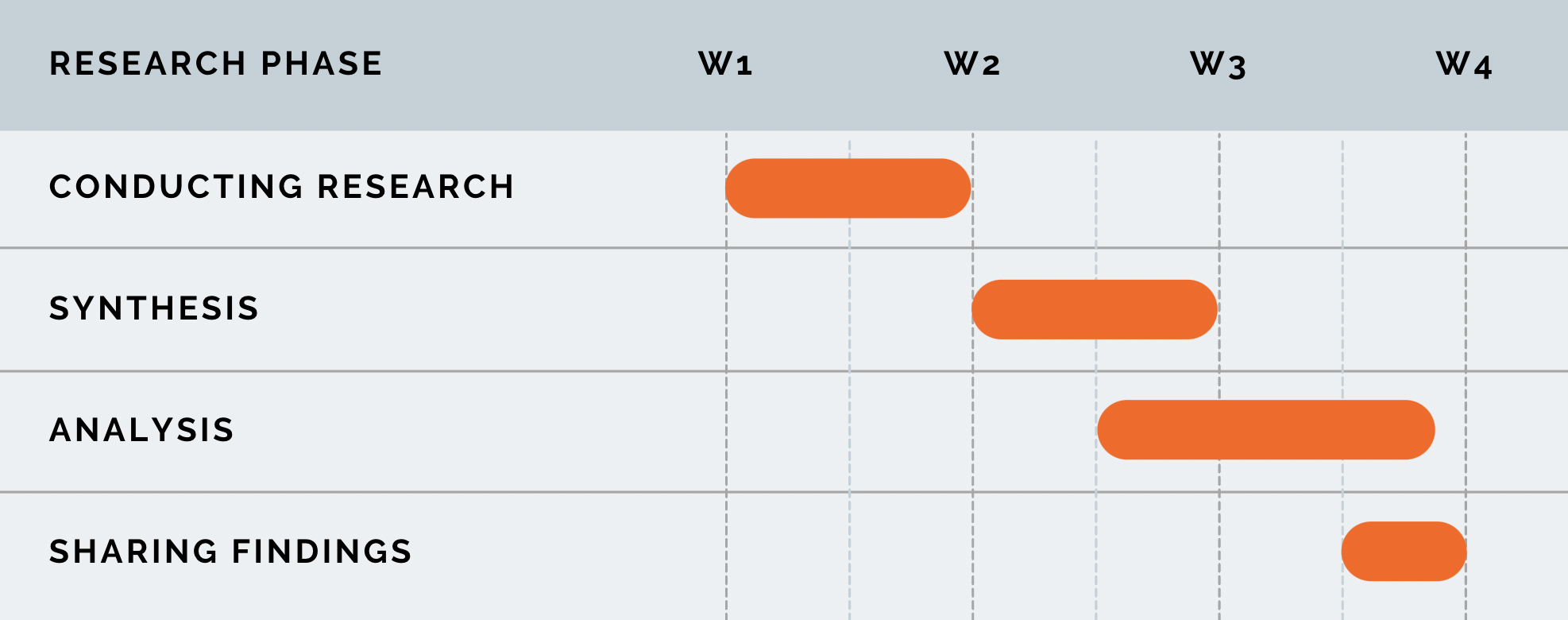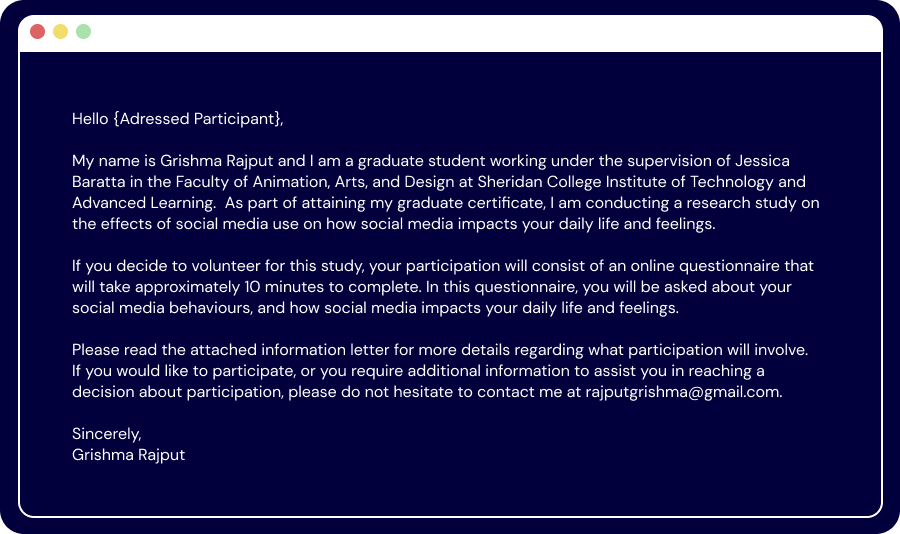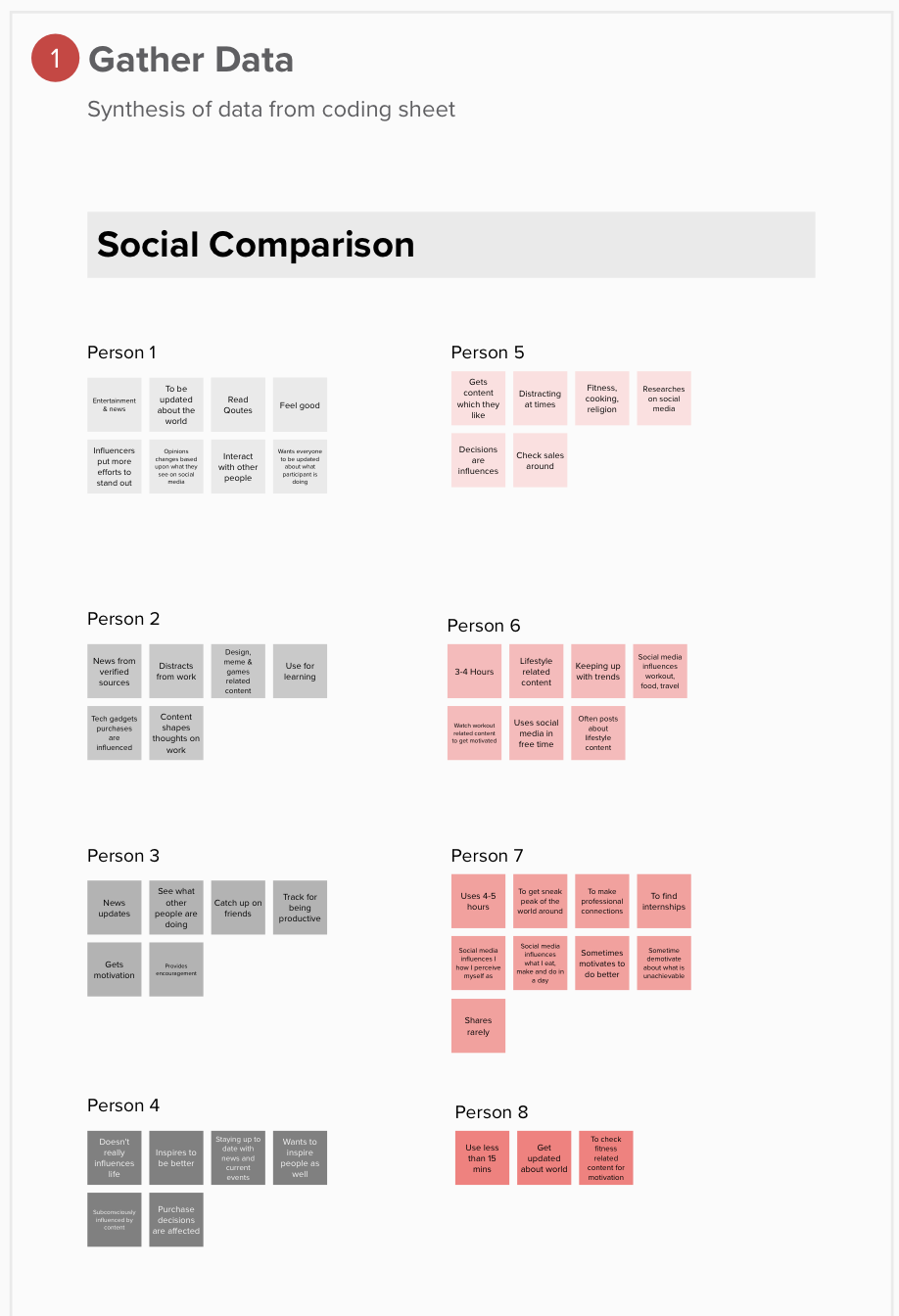How social media affects what we percieve ourselves?
Look up at the stars and not down at your feet. Try to make sense of what you see, and wonder about what makes the universe exist.
Social comparison process involves people coming to know themselves by evaluating their own attitudes, abilities, and traits in comparison with others. In most cases, we try to compare ourselves to those in our peer group or with whom we are similar.
As social media use becomes increasingly pervasive, research exploring its psychological effects has brought phenomena related to online social comparison to the forefront. In addition to ongoing efforts to destigmatize mental health and vulnerability, discussions about the psychological impacts of social comparison have opened avenues to related phenomena like imposter syndrome.
With so many people relating to this internal experience, the research in this project aims to explore themes of social comparison on social networking sites (SNS) in the context of imposter syndrome and its effects on psychological distress in graduate and undergraduate students.
Research Goals
- Analyze social comparison and impostor syndrome and the effects they have on psychological distress in students and young professionals
- Explore the moderating role of self-efficacy in the relationship between social comparison and psychological distress
- Observe and analyze the relationship between social networking site (SNS) usage and experiences of social comparison and psychological distress in students and young professionals
Hypothesis
Online Social Comparison can amplify the Impostor Phenomenon (IP), which is linked to psychological distress; however, this relationship can be moderated by individuals’ beliefs regarding self-efficacy.
Assumptions
- Social comparison is ubiquitous in human behaviour
- EImposter Syndrome is commonly experienced
- Impostor Syndrome is more likely to affect high-achieving people
- Upward social comparison is common
- Upward social comparison can negatively affect self-perception, self-evaluation, and self-efficacy
- Social comparison affects self-belief, confidence, motivation
- Social comparison can impact an individual in a negative or positive way
- People’s online presence is highly edited or filtered to leave out negative aspects
Methodological Approach
Qualitative SurveySocial comparison is an internal, personal experience that cannot easily be observed or replicated. Factors that might cause upward or downward social comparison may vary based on a person’s unique social context and/or personal feelings of confidence, motivation, and self-belief. As such, we have decided to rely on participants’ accounts of their personal experiences with social comparison using qualitative surveys. Qualitative surveys may also make it easier for participants to speak on sensitive topics like mental health without having to speak directly to an interviewer.
Participants
Students or young professionals between the ages of 18 - 30 who use social media.
Approximate Timeframe
Recruitrment Messaging
Survey Questions
- How old are you?
- What is your gender?
- What is your current occupation?
- Which social media platforms do you use on a daily basis?
- What motivates you to use these SNS platforms as frequently as you do?
- How does social media influence your day-to-day life?
- Thinking back to the last time you used social media, what types of posts do you remember seeing?
- How did the social media posts make you feel?
- What type of content stands out in your mind on social media?
- Do you ever find yourself thinking about what other’s post for an extended period of time? If yes, if you can kindly elaborate.
- Do you ever find yourself influenced by what you’ve seen on social media? If yes, if you can kindly elaborate.
Takeaways
Mapping Data - Affinity
Clustering Data
Rainbow Spreadsheet
Final Insight Statements
- Participants wants to be able to consume desired content because it makes them feel motivated about learning more and be better at but due of intrusive design of these social media applications and their recommendation engines they keep getting advertisements for related product which influences their purchase decisions
- Participants wants to be able to be updated about current affairs going on in and around the globe as well as thier social circle because it makes them feel socially aware and up to date with trends but due to spread of a lot of fake news they constantly keep looking for verified sources
- Participants wants to be able to consume desired content because it makes them feel motivated about learning more and be better at but due of persuasive design of these social media applications and their recommendation engines they keep spending more then expected time on the platforms resulting into distraction from task in hand
- Participants wants to share about their life because they want to share their story and inspire people and eventually become influencers but looking at other influencers they feel like others are putting more effort so they won't be able to reach more people by just occasionally
- Participants wants to see what their friends are doing through SNS because it catch up on them and feel more inclusive part of their life but due to all filters and glamorizing they after seeing their content, participants feel disappointed about not having that sort of life.
“Supposing is good, but finding out is better"






